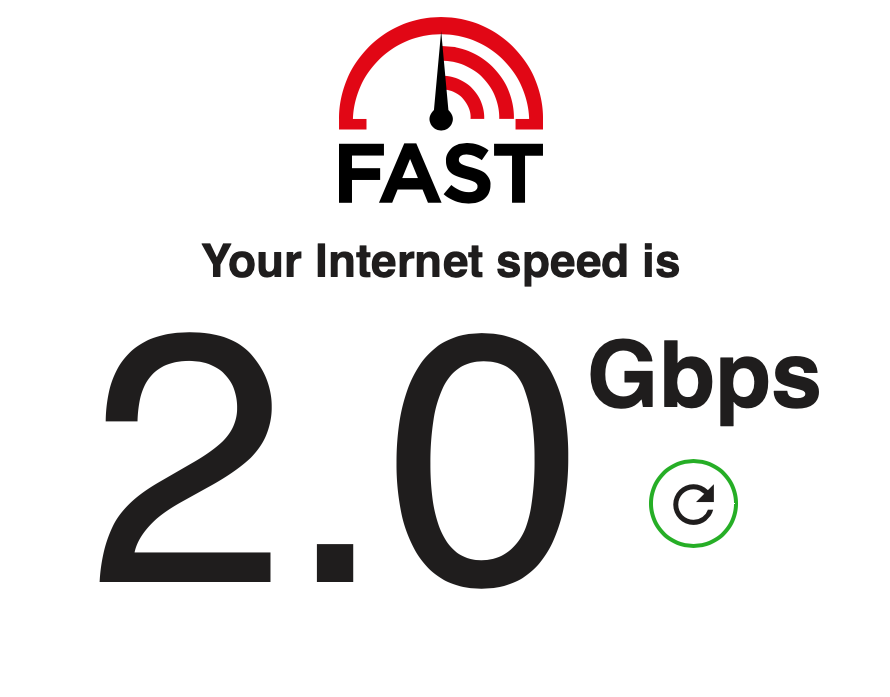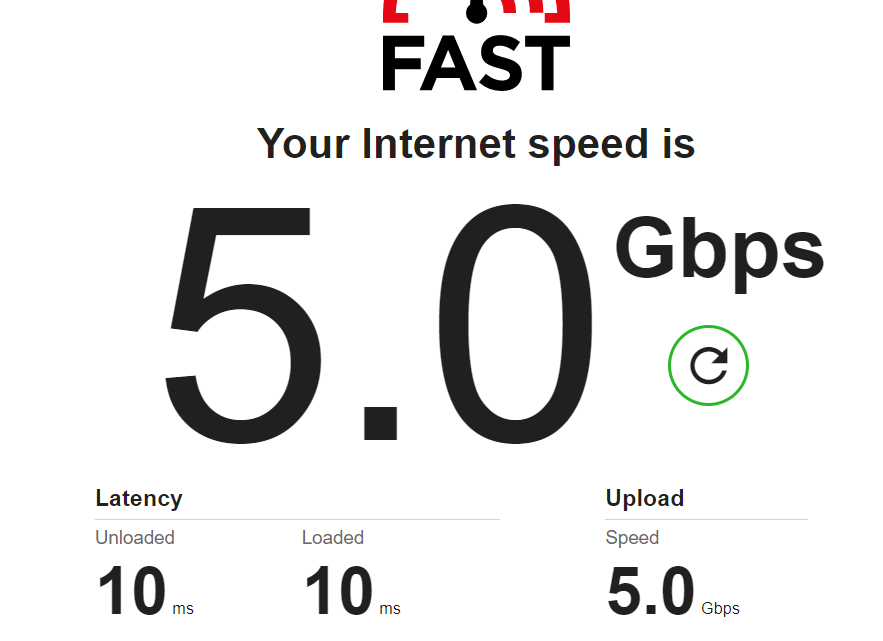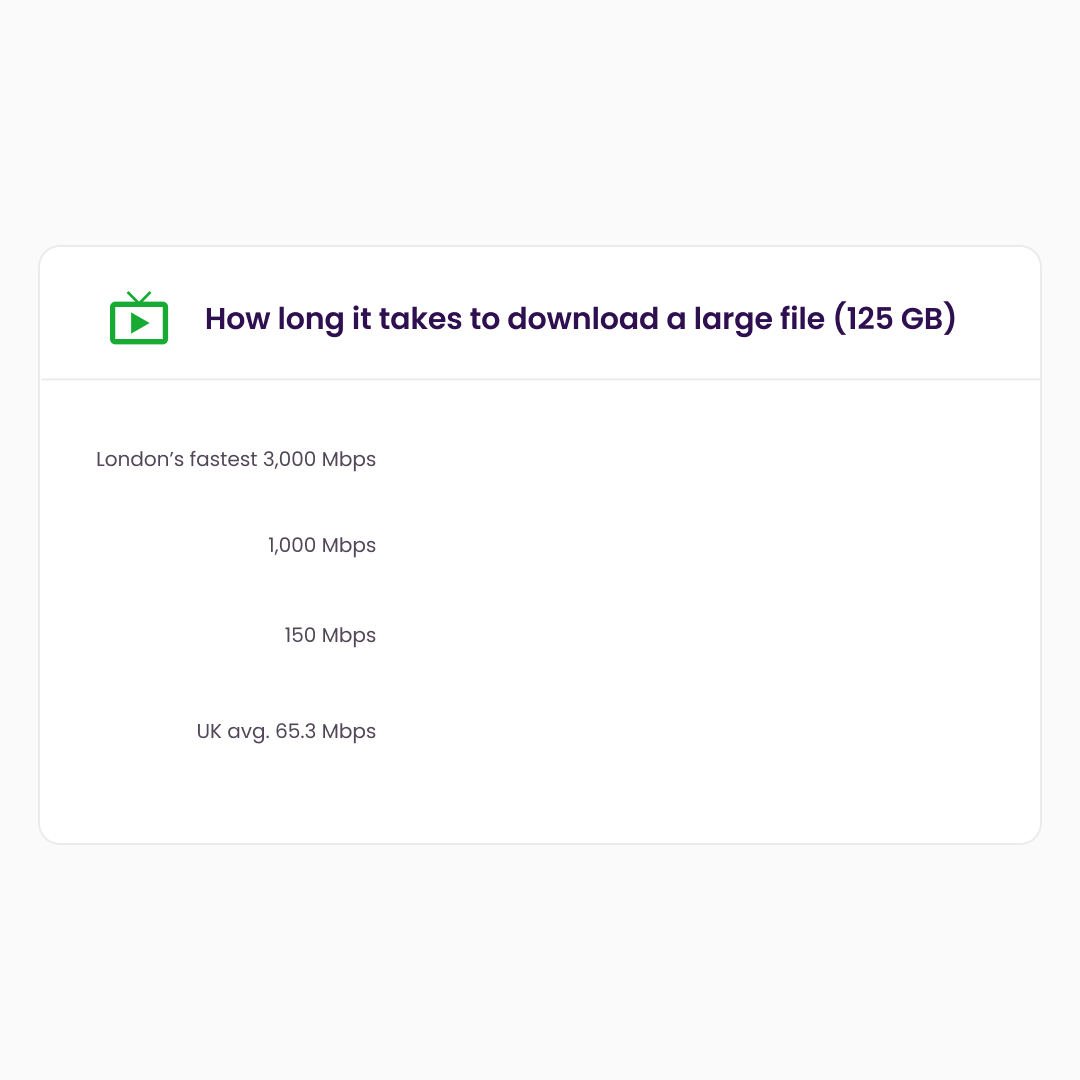Have A Tips About Is 2.5 Gbps Fast

MA310E 2.5 Gigabit PCle Network Adapter To MERCUSYS
Is 2.5 Gbps Fast? Let's Break It Down
1. What Does 2.5 Gbps Actually Mean?
So, you're wondering if 2.5 Gbps is fast, huh? Well, let's get down to brass tacks. Gbps stands for Gigabits per second. Think of it like this: it's the highway your internet data travels on. The bigger the highway (the higher the Gbps), the more data can zoom through at once. Essentially, 2.5 Gbps means your internet connection can theoretically download or upload 2.5 Gigabits of data every single second. That's a whole lotta Netflix in a hurry!
Now, before you get too excited, remember the "theoretical" part. Just like real highways, your internet speed can be affected by traffic jams (network congestion), the quality of your equipment (your router and modem), and even the distance your data has to travel. But generally speaking, 2.5 Gbps is a pretty significant number. It places you firmly in the "high-speed internet" category and opens doors to some serious bandwidth-intensive activities.
Compared to the average internet speed, 2.5 Gbps is miles ahead. Most households are still rocking speeds significantly lower, which can lead to buffering woes and frustrating lag during peak hours. With 2.5 Gbps, you're likely to be the envy of your neighborhood, especially if everyone else is still struggling with their ancient internet packages. Consider it an investment in your sanity and overall digital well-being. You'll thank yourself later!
Think of it like upgrading from a bicycle to a sports car. Sure, the bicycle (slower internet) gets you there eventually, but the sports car (2.5 Gbps) makes the journey significantly faster and more enjoyable. Plus, you can probably show off a little. Just be careful not to get a speeding ticket (overuse your bandwidth). In short, 2.5 Gbps isn't just "fast," it's "seriously fast" for most typical household uses.

What Can You Actually DO With That Kind of Speed?
2. Beyond Just Browsing Cat Videos
Okay, so we've established that 2.5 Gbps is quick, but what does that translate to in terms of real-world usage? Well, prepare to have your mind blown a little. This kind of bandwidth is a game-changer for a number of activities, from streaming and gaming to remote work and smart home management.
First off, streaming becomes a breeze. Forget about buffering during those crucial moments in your favorite show. With 2.5 Gbps, you can stream multiple 4K or even 8K videos simultaneously on different devices without a single hiccup. Plus, you can download movies and shows in the blink of an eye. Say goodbye to those agonizing waits for your downloads to complete. Hello, instant gratification!
For gamers, 2.5 Gbps is practically a superpower. Low latency (ping) is crucial for competitive online gaming, and a faster connection like this minimizes lag and ensures a smoother, more responsive gaming experience. Plus, downloading massive game files and updates becomes significantly faster, so you can spend less time waiting and more time fragging your opponents.
And if you're working from home, 2.5 Gbps is a lifesaver. You can participate in video conferences, upload and download large files, and collaborate with colleagues seamlessly without any bandwidth issues. It's like having a dedicated high-speed connection just for your work tasks, making remote work feel as efficient and productive as being in the office. Ultimately, 2.5 Gbps isn't just about speed; it's about unlocking a new level of digital freedom and convenience in your daily life.

Testing 5Gbps Residential FTTP With Fibre Heroes Pro
Is 2.5 Gbps Overkill? Factors to Consider
3. When "Fast" Might Be Too Much
Alright, let's be real. While 2.5 Gbps sounds fantastic (and it mostly is), it might be a bit like using a firehose to water a houseplant for some people. Whether or not you need that much speed depends on a few key factors. Let's consider your household size, your internet usage habits, and of course, your budget.
If you live alone and primarily use the internet for basic browsing, email, and occasional streaming, 2.5 Gbps is probably overkill. You're unlikely to use even a fraction of that bandwidth, and you could likely save money by opting for a slower (and cheaper) internet plan. On the other hand, if you have a large family with multiple people streaming, gaming, and working from home simultaneously, 2.5 Gbps might be just what you need to keep everyone happy and productive.
Another thing to consider is the type of devices you use. Older devices might not be able to take full advantage of a 2.5 Gbps connection. Your router also needs to be up to the task. Make sure you have a modern router that supports these speeds, otherwise, you'll be stuck with a bottleneck even if your internet connection is lightning-fast. Its like having a super-fast car but being stuck on a dirt road.
Finally, let's talk about cost. 2.5 Gbps internet plans are typically more expensive than slower plans. So, you need to weigh the benefits against the price. If you're on a tight budget, you might be better off sticking with a slower plan that still meets your needs. Think of it this way: Do you really need a Ferrari to drive to the grocery store? Sometimes, a reliable sedan will do just fine. Consider what best suits your needs, and dont let anyone upsell you just for the sake of it.

MA310E 2.5 Gigabit PCle Network Adapter To MERCUSYS
Upgrading to 2.5 Gbps
4. More Than Just a New Internet Plan
So, you've decided that 2.5 Gbps is the speed for you! Awesome! But before you call up your internet provider and start bragging to your friends, there are a few things you need to make sure you have in place to actually take advantage of that blazing-fast connection. Its not as simple as just paying for it, you need the right tools for the job.
First and foremost, you'll need a compatible router. Not all routers are created equal, and older models simply won't be able to handle the throughput of a 2.5 Gbps connection. Look for a router that specifically supports multi-gigabit speeds and has ports that can handle at least 2.5 Gbps. Wi-Fi 6 or Wi-Fi 6E are also highly recommended for optimal wireless performance. It's like having a supercharger on your car — you need the right engine to use it.
Next, check your Ethernet cables. If you're still using old Cat5 cables, it's time for an upgrade. You'll need Cat5e or, preferably, Cat6 cables to ensure that your wired devices can communicate at gigabit speeds. These cables are designed to handle the higher bandwidth requirements and minimize signal loss. Dont skimp on these; its like putting cheap tires on that Ferrari we mentioned earlier.
Finally, make sure your devices are capable of supporting gigabit speeds. Older computers, laptops, and smart devices might have network cards that are limited to 1 Gbps. In that case, even with a 2.5 Gbps internet connection, those devices will only be able to connect at 1 Gbps. Check the specifications of your devices to see what their maximum network speeds are. Consider upgrading your devices if you want to take full advantage of your new internet connection. Getting faster internet isn't as simple as paying for it - it's making sure all the pipes in the system can handle the flow. That means new cables, maybe a new router, and possibly some new hardware. So, while 2.5 Gbps is undeniably fast, make sure your setup can actually deliver that speed to all your devices.

Gbps To Mbps Converter (Gbps Mbps)
Alternatives to 2.5 Gbps
5. Exploring Your Internet Speed Choices
Okay, so 2.5 Gbps might seem like the ultimate speed demon, but let's be honest, it's not the only option out there. Depending on your needs and budget, there might be other internet plans that are a better fit for you. It's all about finding the sweet spot between speed, cost, and your actual internet usage.
If you're a light internet user who primarily browses the web, checks email, and streams the occasional movie, a slower plan in the 100-300 Mbps range might be perfectly adequate. These plans are typically more affordable and will still provide a smooth and reliable internet experience for basic tasks. You won't be able to download large files as quickly, but you'll likely save a significant amount of money each month. Its like choosing between a motorcycle and a minivan; one has much more oomph, but do you really need it?
For households with multiple users who stream, game, and work from home, a plan in the 500 Mbps to 1 Gbps range might be a good compromise. These plans offer a significant speed boost over slower plans, but are still less expensive than 2.5 Gbps. They'll provide enough bandwidth for most online activities without breaking the bank. Plus, you'll likely have fewer issues with buffering and lag compared to slower plans.
Ultimately, the best way to determine the right internet speed for you is to assess your actual internet usage and budget. Consider how many people in your household use the internet, what they use it for, and how much you're willing to spend each month. Don't be afraid to shop around and compare different internet plans to find the best deal. Getting faster internet just because the marketing told you it was better is pointless without examining actual internet habits. Remember, you're looking for the Goldilocks zone - not too slow, not too fast, but just right!

What Is 1,000 Mbps A Guide To 1 Gbps
FAQ
6. Everything You Wanted to Know (But Were Afraid to Ask)
Q: Will upgrading to 2.5 Gbps magically fix all my internet problems?
A: Sadly, no. While a faster connection will certainly improve your internet speed, it won't solve problems caused by other factors, such as a faulty router, outdated devices, or network congestion on the provider's end. Think of it as upgrading to a sports car but still having to drive on bumpy roads.Q: My computer only has a 1 Gbps Ethernet port. Will I still benefit from a 2.5 Gbps connection?
A: Yes, but only partially. Your computer will be limited to a maximum speed of 1 Gbps, but other devices on your network might still benefit from the faster connection. Plus, a faster connection can reduce congestion on your network, leading to a better overall experience for everyone.Q: Is 2.5 Gbps internet worth the extra cost?
A: It depends on your needs and budget. If you're a heavy internet user who regularly streams, games, and works from home, the extra cost might be justified. However, if you're a light internet user, you might be better off sticking with a slower (and cheaper) plan.Q: How do I test my internet speed to see if I'm actually getting 2.5 Gbps?
A: Use a reliable speed test website or app, such as Speedtest.net or Fast.com. Make sure to run the test on a device that's connected to your router via Ethernet cable for the most accurate results. Keep in mind that speed tests are just snapshots in time and your actual speeds may vary depending on network conditions.